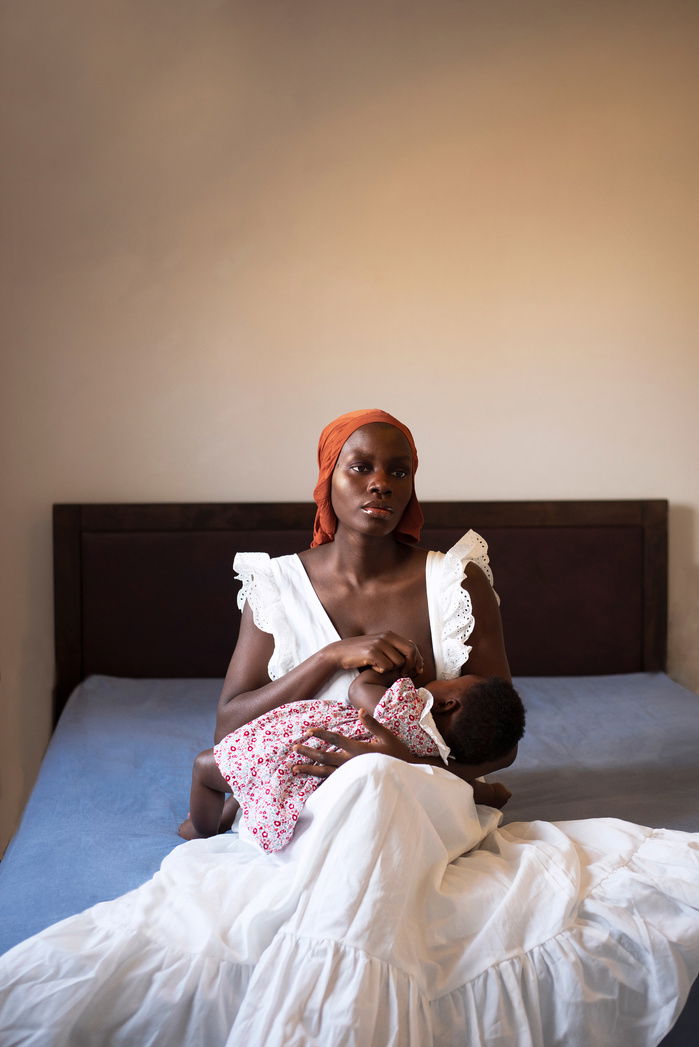Motherhood in Focus: A Black Artist’s Battle with Postnatal Depression and the Power of Breastfeeding
I recently stumbled across a powerful photograph by British-Nigerian photographer and storyteller Dola Posh, this year’s Leica Women Foto Project Award Winner. Her work tells the story of her experience as a Black mother facing isolation and postnatal depression while caring for her baby during the Covid pandemic.
This resonated deeply with me, as I was a rapid-response health visitor at the time, supporting vulnerable families. I witnessed firsthand the intense struggles of mothers and children, often heartbreaking and challenging to see. It is often said that it ‘takes a village to raise a child’ -even at the best of times! During lockdown many mothers had no option but to manage this enormous undertaking alone.
Fortunately, Dola accessed support for PND, found effective coping mechanisms, and channelled her own personal strength through her artistic expression. Many mothers encounter barriers to accessing mental health support, often due to stigma, and worries that the NHS might not provide adequate care for their needs, due to staff ‘burnout’ or institutional racism.
The current Labour Government aims to create “the healthiest generation of children ever” a difficult goal in light of the UK's alarming food poverty, affecting 1 in 5 children, which is particularly felt among Black and Asian families. Breastfeeding provides ideal nutrition and immune support, but when it's not an option, families need accessible guidance for safely feeding their babies and fostering nurturing bonds.
Support for postnatal depression can be found via https://pandasfoundation.org.uk/
